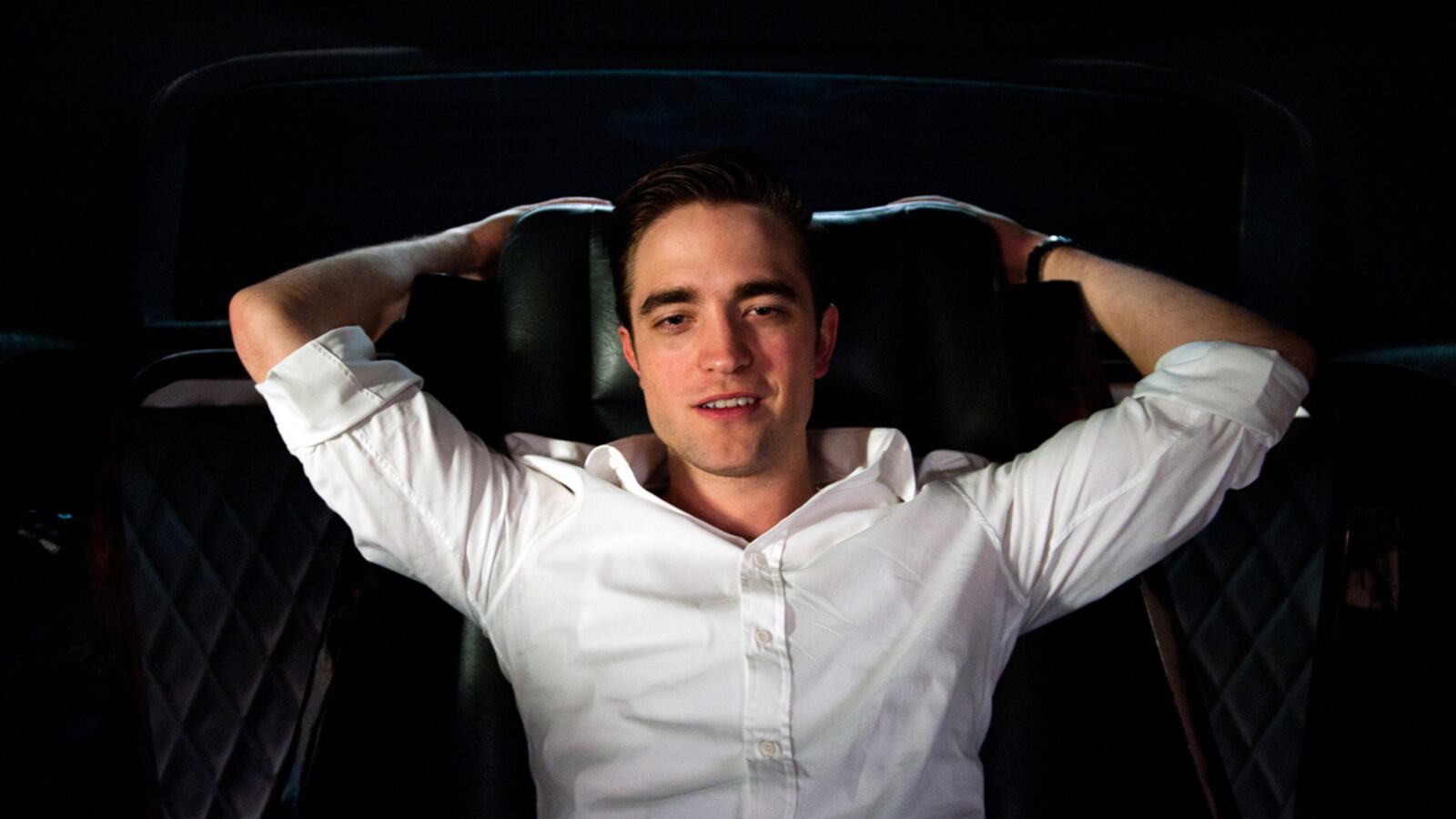Robert Pattinson clearly is an actor with ambition. But does he have the talent to match?
Since becoming a star as part of the phenomenally successful Twilight saga, Pattinson’s projects have signaled he has no interest in becoming one of those performers who spend an entire career trying to recapture the magic of a major franchise. Instead, he’s after what any serious actor craves: respect.
So far, it’s been a struggle. The Twilight films established him as a mainstay at fluffy award shows like Teen Choice, People’s Choice, and MTV Movie Awards, while also bagging Pattinson four Razzie nominations in three years. Every attempt he’s made to stretch his dramatic muscles beyond the role of mopey vampire dreamboat Edward Cullen has met with various degrees of commercial and creative disappointment.
First, it was the excruciating period romance, Little Ashes, released shortly after Twilight, and featuring Pattinson as Salvador Dalí (seriously) swept up in an intimate relationship with Federico García Lorca. Then came Remember Me— Pattinson’s first post-Twilight role, and a film that he also produced—a love story featuring two damaged New Yorkers that (spoiler alert) culminated in the bizarre left-field twist that Pattinson’s character perished in the World Trade Center on 9/11. And then Bel Ami, a risible costume drama that so badly botched the adaptation of a classic French novel that it languished on the shelf until long after the release of the next film Pattinson shot: Water for Elephants.
Of this unfortunate quartet, the Depression-era, circus-set love triangle Water for Elephants is unquestionably the standout. A throwback to classic Hollywood melodramas with impressive production values and strong performances from Oscar winners Reese Witherspoon and Christoph Waltz, it’s the only major-studio film Pattinson has made since Twilight. As such it’s a sharp contrast to Taylor Lautner’s cheesy action flop Abduction. or Kristen Stewart’s franchise wannabe, Snow White and the Huntsman. While Stewart also remains committed to edgy indies, Pattinson has never once opted to go the pure paycheck route, even though he could easily be vying with peers like Shia LaBeouf and Zac Efron to headline Michael Bay or Nicholas Sparks projects.

Pattinson’s latest bid for artistic credibility comes in David Cronenberg’s Cosmopolis, a stylish and talky drama set on the verge of one man’s financial apocalypse that opens in limited release on Aug. 17. Based on the 2003 novel by Don DeLillo, it is Pattinson’s first collaboration with a filmmaker revered by cinephiles as a top-level auteur.
That’s a very big deal for the actor. So it must be frustrating to see the film’s release overshadowed by a tabloid scandal involving his Twilight co-star and (ex?) girlfriend Stewart’s affair with her Snow White director, Rupert Sanders. On the one hand, the whole sordid mess has increased interest in anything Pattinson does to promote Cosmopolis. On the other, it’s a reminder that everything in his career always comes back to Twilight.
The good news is that he’s actually good—or at least utterly believable—in Cosmopolis. As young billionaire Eric Packer, Pattinson delivers a tightly controlled and impressively self-assured performance. With the performance free of the overwrought mannerisms—the weird faces, the emotional outbursts—that give his critics most of their ammunition, the biggest complaint one could have about Pattinson’s work here is that it’s too restrained.
Not that there aren’t showy moments. Cosmopolis is structured as a series of one-on-one meetings between Packer and various personal and professional associates, most taking place in his high-tech stretch limo, which resembles a spacepod full of bright lights and tiny screens that keep Packer plugged into the digital information he dissects to make (or lose) his fortune. Whether trying to persuade his wife (Sarah Gadon) to have sex with him, actually having sex with his art-dealer mistress (Juliette Binoche), or quizzing his information adviser (Samantha Morton) about an uncertain future, Packer infuses every encounter he experiences with dense, hyper-intellectual conversation.
Simply delivering the dialogue is an acting challenge like no other we’ve seen Pattinson attempt before. That he does so while also in a post-coital daze or in the midst of an uncomfortably extended prostate exam only increases the level of difficulty. Pattinson is in every scene of the film; he is its driving force and holds his own opposite well-respected co-stars who pop in and out in bit parts (not only Binoche and Morton, but also Paul Giamatti and Mathieu Amalric as two very different stalkers).
While the film received mixed reviews in its premiere at this year’s Cannes Film Festival, it also garnered Pattinson the best notices of his career to date. Variety’s Justin Chang raved: “Pattinson’s excellent performance reps an indispensable asset,” while Amy Taubin gushed, “Pattinson is as subtle as he is spectacular” in Film Comment. Even critics who dislike the film have generally been kind to its star, exemplified by Entertainment Weekly’s Owen Gleiberman noting that Pattinson “delivers his frigid pensées with rhythmic confidence.”
This is new territory for Pattinson. Usually his vocal fan base—who distinguish themselves from Twi-hards by their appreciation for their idol’s thespian skills—will flood the user-comments section of negative reviews online with claims that RPattz (as he’s commonly known on both fan and gossip sites) is totally going to blow everyone’s minds in his next role.
The problem, as underscored by the ease with which his co-stars stole the spotlight in Elephants, has always been that Pattinson either fades into the background or stands out in a bad way (as in Bel Ami). Maybe it’s the heavy baggage of Twilight, or maybe it’s that he was still relatively inexperienced when he suddenly became a star. His biggest pre-Twilight credit was a supporting role in Harry Potter and the Goblet of Fire and he’d otherwise made a handful of British TV movies that went nowhere. Whatever the explanation, there was never much sign that Pattinson was more than a flash in the pan sensation, until now.
Cosmopolis is too arty and abstract, even by Cronenberg standards, to become a commercial success. But it may accomplish the larger goal for which Pattinson has been striving the last several years. He’s finally found a film that breaks the mold.





